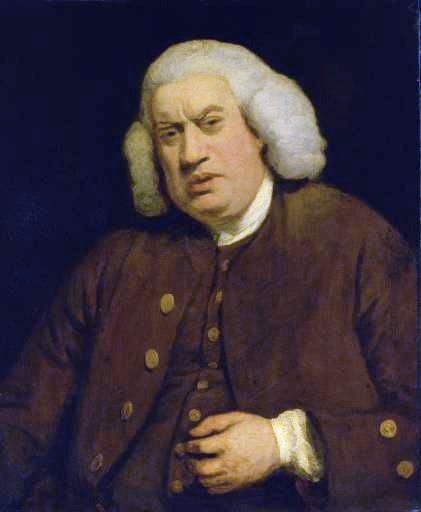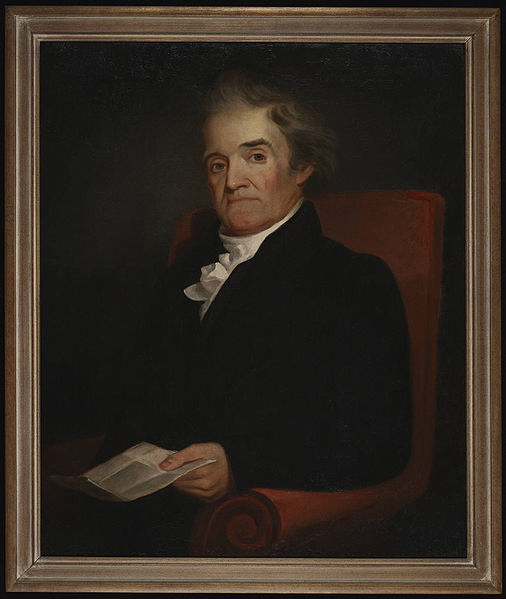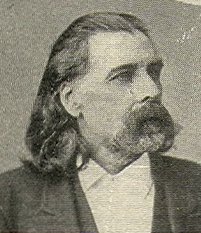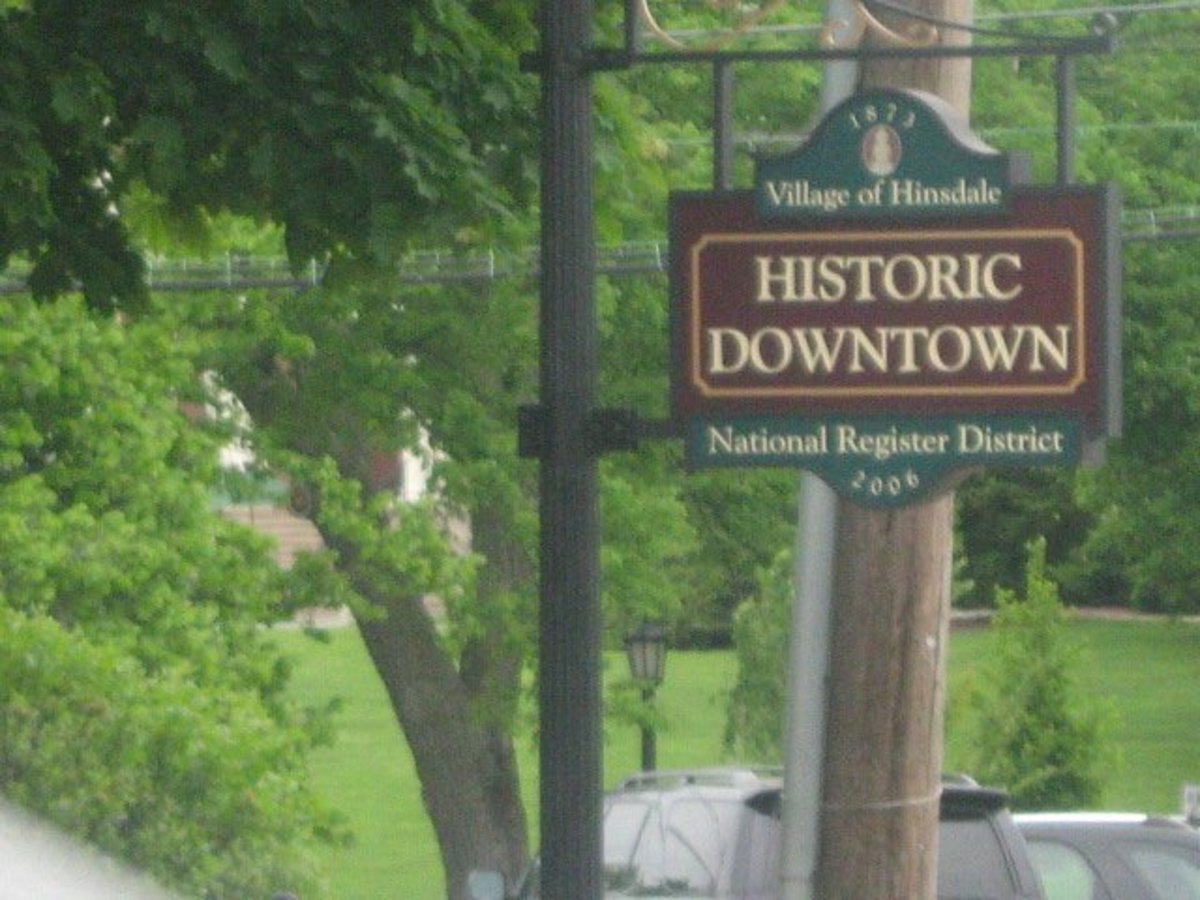Americanisms, English in America
Americanism
John Witherspoon was a Scottish minister who immigrated to America in 1768. He became president of the college of New Jersey, now Princeton, he was an enthusiastic supporter of the American colonists and was the only clergyman to sign the declaration of independence. His place in linguistic history is assured as the first person to use the term Americanism, in his essay on English in America titled; “Americanism, a way of speaking peculiar to this country.” written in 1781.
Not only did the colonists declare themselves sovereign and separate from England, the academics began to realize that the English language was changing and its use was evolving in a different way on the American continent than was to be found in England.
Dr. Samuel Johnson

English in England
The English language, as far as England was concerned was standardized in spelling and to some extent definitions by Dr. Samuel Johnson. (1709-1784) in 1755 he published A Dictionary of the English Language. In his preface he sets out his “Aims and Procedures” Where he states “The chief intent is to preserve the purity and ascertain the meaning of our English idiom” The definitions he used raised some eyebrows at the time and is a source of some amusement today. A couple of examples;
Excise: A hateful tax levied upon commodities, and adjudged not by the common judges of property, but by wretches hired by those to whom excise is paid.
Oats: A grain, which in England is generally given to horses, but in Scotland supports the people.
His politics were definitely conservative as demonstrated by his definitions of the two main political parties of his day.
Tory: One who adheres to the ancient constitution of the State, and the Apostolical hierarchy of the Church of England, opposed to a Whig.
Whig: The name of a faction.
Nevertheless Dr. Johnson succeeded in standardizing the use and spelling of English, at least in literary and academic circles.
Noah Webster

Noah Webster and American words
Noah Webster (1758-1843) was born in West Hartford, Connecticut. Educated at Yale, he fought briefly in the war of Independence. He was an educator and he helped found a number of academic institutions, most notably AmherstCollege in Massachusetts. He began his work on a uniquely American Dictionary in 1800. It took him 25 years to complete and was not finally published until 1828 when he was 70. In 1854 a letter was sent to the publishers from the Superintendent of Common Schools in the State of Maine;
“Nationality of language is a stronger bond of union than constitutional compromises or commercial affiliations. Your dictionaries afford every facility for a national standard.”
So Webster’s American Dictionary set the standard for American English. Webster was a proponent of economy in spelling and also of consistency. So Aluminium became Aluminum and led to a difference in pronunciation on both continents. For consistency he argued that you cannot write labour and then write laboring. So the “u” got dropped in that word and in any others where it appeared to be superfluous.
In 1909 playwright Israel Zengwili had a very successful play called “The Melting Pot’ This soon became a part of the American lexicon and is widely used today. It is especially useful in describing American English because of the large number of words of foreign origin that have since become an accepted part of American English, as well as words that came into use reflecting the western expansion of the population. Words like;
Bronco, doggie, Rustler, Maverick, Roundup, Delicatessen, Kindergarten, Spiel.
Other words of Native American origin entered the language, not always because they were Native words, sometimes it was because that is how the Europeans expected the “Indians” to speak;
Tomahawk, powwow, wigwam, papoose, How (As in a greeting) paleface, heapbig, warpath, warpaint.
Josh Billings

So who knocked up the knocker upper man?
American, as it is spoken
Some authors like Artemis Ward achieved humor and satire by writing in, not only the vernacular of the common folk but spelled it that way also, Though perhaps the most famous of this genre was Josh Billings.
Josh Billings was the pseudonym of Henry Wheeler Shaw (1818-1885)He wrote using a rustic form of spelling where he tried to imitate the speech of American English. He became a national figure in the years after the civil war for his down to Earth philosophizing. Abraham Lincoln would frequently quote him to Congress. Some examples of his American “Frontier wisdom” are;
“Chastity iz like an isikel, if it onse melts that’s the last ov it.”
“It iz tru that welth won’t maik a man vartuos, but I notis thare ain’t ennyboddy who wants tew be poor jist for the purpiss ov being good.”
“Akordin tu skriptur thar will be just about as many kammills in heavin as rich men.”
It was inevitable with all the varied influences on American English that it would develop separately from English as spoken anywhere else. This causes misunderstandings that are usually hilarious. Everyone from the British Isles has heard the song “Molly Malone” though the song refers to “Cockles” as a sea food, try mentioning to an American that Cockles grow wild on the beach, or if you are or have been a Rugby player, try mentioning to an American that you were the team Hooker.
Examples abound; a friend of mine, who is an executive with an advertising company, once met an Australian businessman at Los Angeles airport. The man was travelling with his wife and my friend, whose name is Randall, innocently stuck out his hand to the wife and said, “Hi! I’m Randy” not realizing that outside America, randy means horny. The businessman replied “Well good for you.” A commentator, on a previous article about English swear words mentioned how, in an English pub, someone had said “Can I bum a fag” word to the international traveler, never mix slang terms from two countries. On my very first visit to the United States I was taken to a baseball game. I observed a young man collecting balls from around the bullpen, I asked my companion what he was doing, and she replied that he was shagging the balls. I nearly choked on my Dodger Dog. Recovering my composure I remarked that a good shagger is hard to find. Those around me agreed with this observation.
A few more;
What Americans call an apartment, Brits call a flat. What Americans call a flat, Brits call a puncture. In America a fanny is your backside, Americans should avoid using this term in the UK. Especially do not refer to the pouch that is carried around the waist as a fanny pack. In the UK fanny is the slang word for vagina. Americans fill their cars with Gasoline not Petroleum, the front of a car is the Hood, not the Bonnet and the rear is the Trunk not the Boot. In America the toilet is called the bathroom or the restroom even though your intent is neither to bathe nor rest.
The best efforts of corporations, politicians, Movies and television are doing what they can to standardize English but it is extremely doubtful they will succeed. There is a distinction between linguistic scholarship and language reality. It was eloquently expressed by the American poet Walt Whitman, in an essay he wrote on American slang in 1885;
“Language, be it remembered, is not an abstract construction of the learned, or of dictionary makers, but is something arising out of the work, needs, ties, joys, affections, tastes of long generations of humanity, and has its bases broad and low, close to the ground. Its final decisions are made by the masses, people nearest the concrete, having most to do with actual land and sea. It impermeates all, the past as well as the present, and is the grandest triumph of human intellect.”
English swear words
- English Swear Words
The English language uses amusing, unusual, even unique methods for swearing. Every language has its expletives but English is bloody strange.That last one for instance, peculiar to England though...
- Amazon.com: English Swear words and other ways to be completely misunderstood. eBook: Peter Freeman,
Amazon.com: English Swear words and other ways to be completely misunderstood. eBook: Peter Freeman, C. J. Hill: Kindle Store








